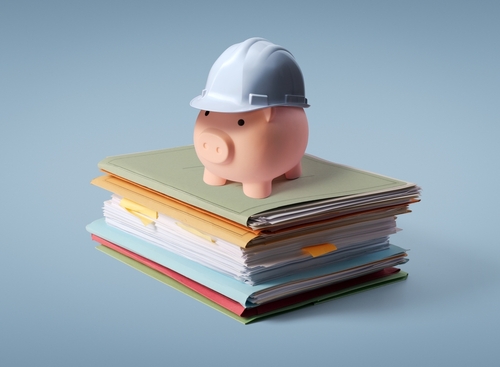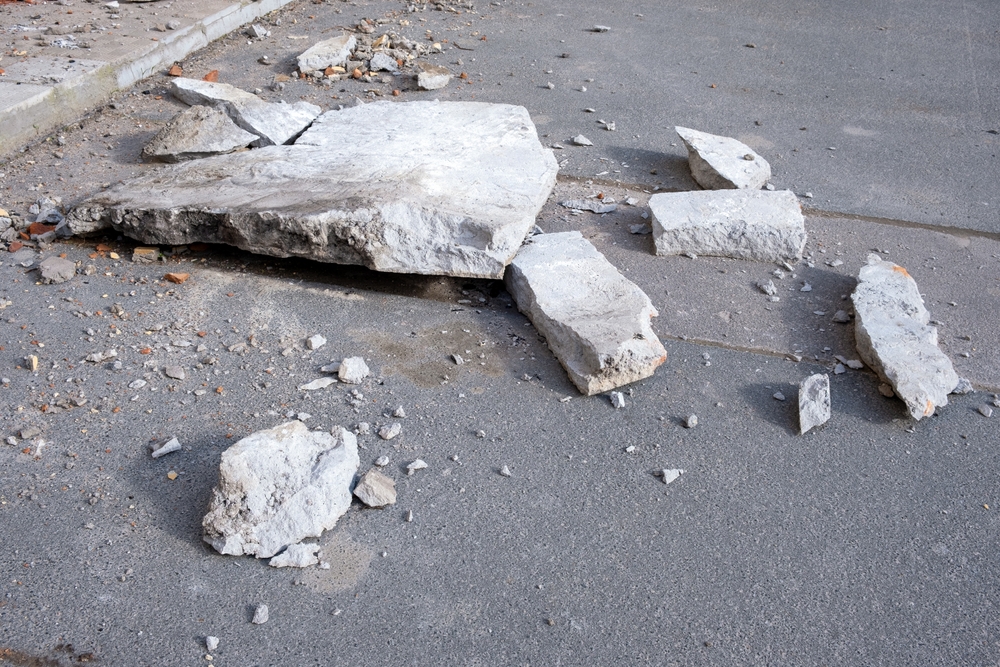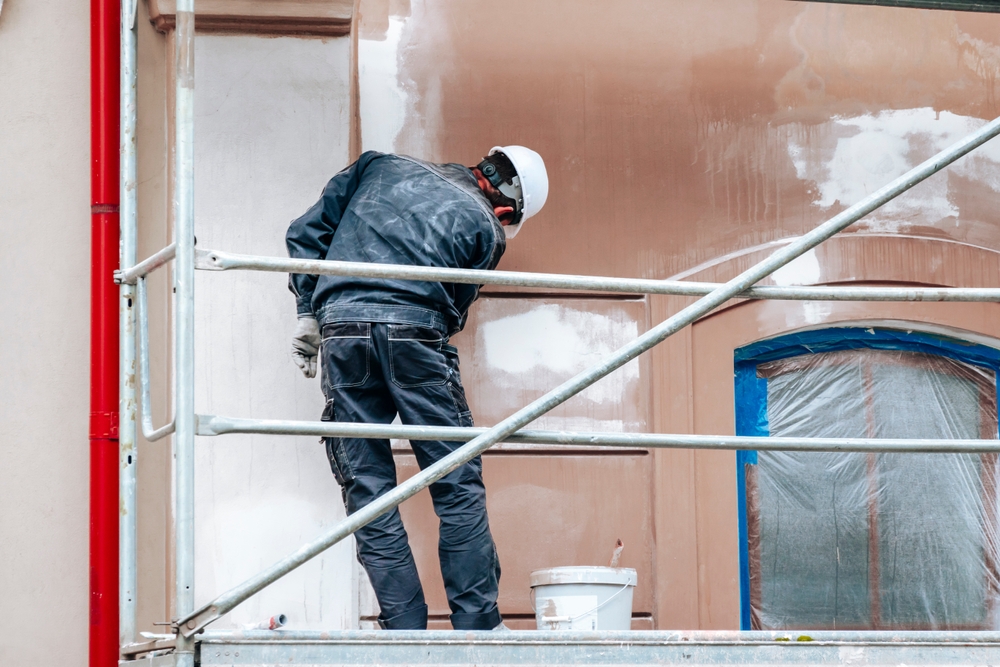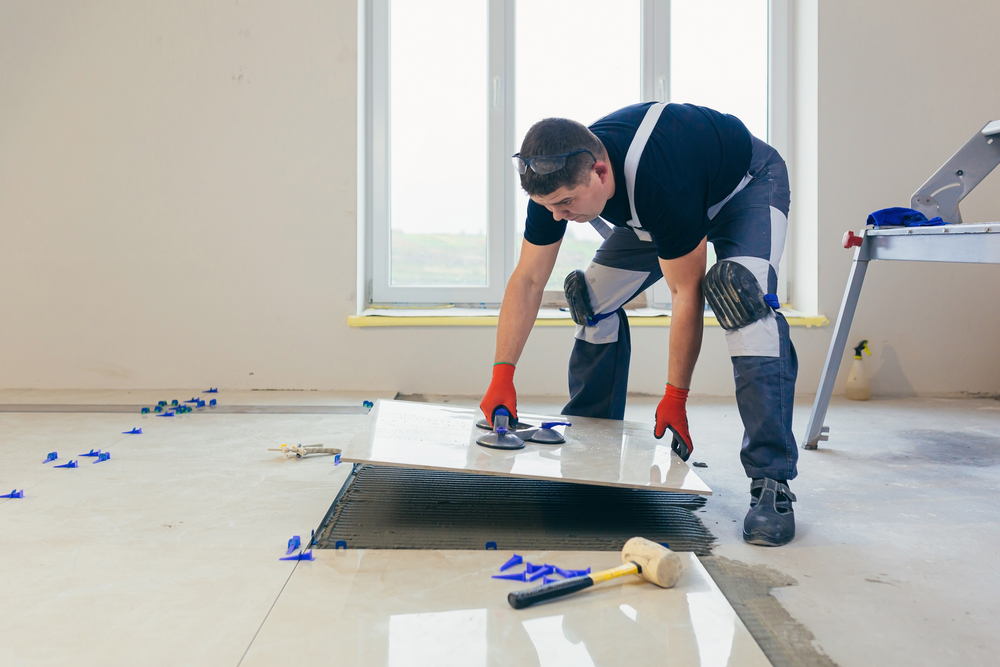Understanding which home improvements are tax deductible can provide you with significant savings during tax time, especially if you’re planning substantial renovations or repairs. Generally, the Internal Revenue Service (IRS) doesn’t allow taxpayers to deduct the costs of home improvements directly on their yearly tax return. However, this doesn’t mean there aren’t financial benefits to making certain improvements to your property. Certain home upgrades can qualify for tax deductions, but it primarily depends on the type, purpose, and timing of the improvements.
Energy efficiency upgrades often come with tax perks. For instance, specific improvements like installing energy-efficient windows or an electric heat pump could make you eligible for tax credits, which directly reduce the amount of tax you owe. Furthermore, when you sell your home, capital improvements can increase your home’s cost basis, potentially lowering capital gains tax if your profit exceeds the IRS exclusion limit. Always remember that rules for rental properties and home office improvements are different, and you should stay informed about how these can affect your tax situation.
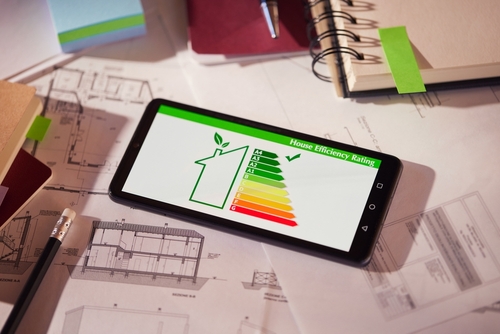 As a homeowner, you can leverage tax credits and rebates to significantly reduce the cost of certain energy-efficient home improvements. Understanding these financial incentives can lead to substantial savings when you file your taxes.
As a homeowner, you can leverage tax credits and rebates to significantly reduce the cost of certain energy-efficient home improvements. Understanding these financial incentives can lead to substantial savings when you file your taxes.
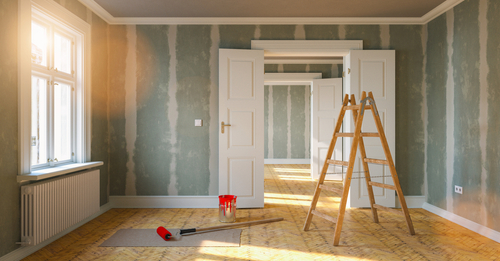 Making improvements to your home office can not only enhance your work environment but also provide tax benefits. If used exclusively for business purposes, certain improvements may be deductible.
Making improvements to your home office can not only enhance your work environment but also provide tax benefits. If used exclusively for business purposes, certain improvements may be deductible.
Key Takeaways
- Not all home improvements are tax deductible, but certain upgrades can qualify for deductions or tax credits.
- Improvements that increase energy efficiency may be eligible for tax credits, directly reducing the amount you owe.
- Capital improvements can increase the cost basis of your home and potentially reduce the taxable gain when you sell.
Understanding Tax Deductible Home Improvements
In navigating the complexities of tax deductions for your home, it’s crucial to understand which home improvements can be considered deductible and how they differ from basic repairs.Definition of Tax Deductible Home Improvements
Tax deductible home improvements are specific types of capital improvements on your property that can potentially be used to decrease your taxable income. These are enhancements that add value to your home, prolong its usable life, or adapt it to new uses. For instance, installing energy efficient heat pumps might qualify you for a tax credit. It’s important to keep receipts and records as proof of such capital improvements, as they might be pertinent during tax assessments.Difference Between Repairs and Improvements
When you’re aiming to claim a tax deduction, distinguishing between repairs and improvements becomes essential. Repairs are works done to maintain your home’s current condition, such as fixing a leaky faucet or patching a wall. These are typically not tax deductible because they’re considered necessary maintenance. On the other hand, improvements enhance your home’s value or extend its life—these can often be eligible for tax deductions. The IRS tax laws may evolve, so it’s advisable to consult a tax professional for the most accurate and recent guidelines specific to your situation.Qualifying for Home Improvement Deductions
When you undertake home improvements, certain types can qualify for tax deductions, reducing your taxable income. These improvements must meet specific criteria set forth by the IRS and require meticulous documentation.Criteria for Tax-Deductible Home Improvements
To deduct home improvement costs on your taxes, the improvements must usually add to the property’s value, prolong its life, or adapt it to new uses. Certain energy-efficient upgrades might qualify for a tax credit. Not all improvements are eligible, so it’s essential to understand the distinctions. A tax credit directly reduces the tax you owe, rather than just reducing the taxable income.Documentation and Receipt Requirements
As a homeowner, maintaining receipts and records for all improvements is crucial for claiming a deduction. The IRS may request this documentation to support your claim. These records should include:- The contractor’s name and address
- A detailed description of the work
- Dates when the work was started and completed
- Proof of payment and amount paid
Tax Deductible Home Improvement Credits and Rebates
 As a homeowner, you can leverage tax credits and rebates to significantly reduce the cost of certain energy-efficient home improvements. Understanding these financial incentives can lead to substantial savings when you file your taxes.
As a homeowner, you can leverage tax credits and rebates to significantly reduce the cost of certain energy-efficient home improvements. Understanding these financial incentives can lead to substantial savings when you file your taxes.
Energy Efficiency Improvement Credits
You are entitled to receive a Energy Efficient Home Improvement Credit when you make qualifying upgrades to your home. This includes a range of energy property costs such as:- Doors and Windows: Earn a 30% credit on your expenses, up to $500 for doors and $600 for windows, when you replace them with energy-efficient models.
- Heat Pumps and Biomass Stoves: If you install a qualified heat pump or biomass stove, you could claim up to $2,000 per year.
- Home Energy Audit: Undertaking a home energy audit may afford you up to $150 in credit, providing you with a roadmap for potential improvements.
Residential Renewable Energy Products
By investing in renewable energy products for your home, you can take advantage of the Residential Clean Energy Credit, which includes:- Solar Panels: Installing solar energy systems may qualify you for a credit that can cover a significant percentage of your installation costs.
- Rebates: Check for local rebates in addition to federal tax credits, as some states or organizations offer additional financial incentives for renewable energy installation.
Tax Guidelines for Specific Home Upgrades
When considering home upgrades for energy efficiency, it’s important to understand the specific tax incentives available. These financial benefits can significantly offset your initial investment by providing credits for eligible improvements.Windows, Doors, and Insulation
Upgrading to energy-efficient windows and doors not only improves your home’s thermal performance but can also lead to tax credits. For instance, you can claim a 30% credit for replacing your old, leaky doors and windows with new models that meet Energy Star standards. The maximum credit for windows is capped at $600, while the credit for two or more doors is limited to $500. Adding proper insulation to your home can also qualify for these energy improvement credits, ensuring your indoor climate is maintained with less energy usage.Heating and Cooling Systems
If you’re considering an upgrade to your heating and cooling systems, you may be eligible for significant tax credits. Installing an energy-efficient central air conditioning system, such as a heat pump, can net you a 30% credit. The credit for specific systems like heat pumps is substantial, with a possibility to claim up to $2,000. It’s a solid investment not just for your comfort but also for long-term savings on both your utility bills and tax obligations.Roofing and Skylights
Improving your home’s topmost layer with energy-efficient roofing materials can yield tax benefits. Similarly, installing new skylights that meet the criteria for energy efficiency can contribute towards a greener home and a healthier planet. Be mindful to choose products that come with an Energy Star rating to ensure they qualify for potential tax credits. Although guidelines and limits for credit amounts can vary, these upgrades can contribute to overall energy savings and tax advantages. Remember, it’s vital to keep receipts and certifications for all your energy-efficient upgrades to claim your tax credits successfully. Always consult with a tax professional to maximize the benefits of your home improvement investments.Deducting Home Office Improvements
 Making improvements to your home office can not only enhance your work environment but also provide tax benefits. If used exclusively for business purposes, certain improvements may be deductible.
Making improvements to your home office can not only enhance your work environment but also provide tax benefits. If used exclusively for business purposes, certain improvements may be deductible.
Home Office Deduction Requirements
To claim the home office tax deduction, your home office must be used regularly and exclusively for conducting business and it must be your principal place of business. This means if you’re an employee, you’re not eligible for the deduction unless you’re working from home for the convenience of your employer. If you’re self-employed, your home office improvements can be deducted based on the percentage of your home used for business.Calculating the Deduction for Home Office Improvements
When you make improvements to your home office, you calculate the deduction based on the cost of the improvement and the percentage of your home that the office occupies. For instance, if you spend $2,000 on a new built-in bookshelf for your office and your home office takes up 10% of your home’s square footage, you can deduct $200 (10% of $2,000) as a home office improvement expense. Remember to keep detailed records of all improvements to substantiate your deductions during tax time.Rental Properties and Home Improvement Deductions
When navigating tax deductions for rental properties, distinguishing between improvements and repairs—and understanding depreciation—is key to maximizing your tax breaks as a landlord.Deductible Improvements for Rental Homes
For your rental property, the IRS allows you to deduct expenses that are classified as improvements. These are modifications that:- Add value to your property
- Prolong its life
- Adapt it to new uses
Understanding Depreciation for Landlords
Depreciation is a method to deduct the cost of wear and tear on your rental property over time. It’s treated as a business expense, even though it doesn’t come out of your account that year. The property must be placed in service—meaning it’s ready and available to rent—before you can begin to depreciate it. In general, you will depreciate the property over 27.5 years for residential rental property. It’s important to note:- Land cannot be depreciated
- Improvements must be depreciated separately from the property
- Depreciation begins when the property is ready for rental
- Depreciation ends when the cost or other basis is fully recovered, or when you retire it from service—whichever comes first
Selling Your Home and Capital Improvements
When you sell your primary residence, the tax implications of your profit can be influenced by capital improvements. These improvements adjust your home’s cost basis, potentially reducing capital gains tax upon sale.How Home Improvements Affect Cost Basis
Capital improvements are renovations or additions that increase your property’s value, prolong its life, or adapt it to new uses. Unlike repairs, capital improvements add value beyond the current tax year and must still exist when you sell your home. Common examples include adding a new roof, installing a new heating system, or building an extension. These improvements increase your adjusted cost basis, which is essentially your property’s original purchase price plus the cost of capital improvements. To determine your profit, subtract the adjusted cost basis from the sales price of your home. Let’s say you initially purchased your home for $250,000 and incurred $50,000 in qualifying capital improvements, your adjusted cost basis would be $300,000. If you sell the property for $500,000, your potential taxable profit is then reduced to $200,000.Calculating Capital Gains on Home Sale
Capital gains are the profits from the sale of your home and are subject to taxation if they exceed certain thresholds. As of the knowledge cutoff in 2023, if you have owned and lived in your primary residence for at least two out of the last five years, you might be eligible for an exclusion of $250,000 in capital gains if filing single, or $500,000 if filing jointly. To calculate your capital gains:- Determine the sales price of your home.
- Subtract the adjusted cost basis.
- Subtract any selling expenses like real estate commissions.
- Sales Price: $500,000
- Adjusted Cost Basis: $300,000 (original purchase price + capital improvements)
- Selling Expenses: $30,000
- Capital Gains: $500,000 – $300,000 – $30,000 = $170,000
Seeking Professional Tax Advice
Making informed decisions about tax-deductible home improvements requires understanding complex IRS guidelines. By seeking guidance from a tax professional, you can ensure that you take advantage of the available tax incentives without infringing on IRS regulations.When to Consult a Tax Professional
You should consult a tax professional when you’re considering making home improvements that may qualify for tax deductions. This is especially important if you’re not familiar with the intricate tax code or the specific documentation required for claiming deductions. If you own a business and the home improvements could overlap with business use, it’s crucial to understand how this affects your eligibility for certain deductions.- Determining eligibility: An accountant can help you understand which improvements are actually tax-deductible.
- Understanding the impact on your tax return: Your tax return may be significantly affected by how deductions for home improvements are claimed.
- Complex situations: If you have an Employer Identification Number (EIN) due to running a business from home, a tax specialist can guide you on the implications for your home office.
Ensuring Compliance with IRS Regulations
Adhering to IRS guidelines is essential when claiming home improvement deductions on your tax return. A tax professional stays up-to-date on the latest changes in tax law, ensuring that you remain compliant and can legitimately claim tax incentives.- Keep track of expenses: Accurate record-keeping of improvement costs.
- File correctly: Ensuring that all necessary forms and schedules are correctly filled out and submitted.
- Avoid audits: A professional can help you reduce the risk of red flags that might trigger an IRS audit.
Frequently Asked Questions
Understanding the tax implications of home improvements is crucial for maximizing your benefits. This section will navigate through the complexities of which expenses may be claimed as deductions.Are home improvement expenses tax deductible when selling a house?
When you sell your home, certain home improvements may be used to increase the cost basis of your property, potentially reducing capital gains tax. For example, if you have lived in your home for two out of the last five years, a portion of the profit may be excluded from taxes.Can homeowners claim tax deductions for office renovations if they work from home?
Homeowners who work from home may be able to deduct a portion of their home improvement costs for renovations of a home office. This applies only if the space is solely used for business purposes.Which home improvement costs are deductible on your rental property taxes?
Improvements that add to the value or prolong the life of your rental property can be deducted through depreciation. However, the deductions are taken over the improvement’s useful life, not all at once.Is the cost of a roll-off dumpster rental tax deductible?
The cost of renting a roll-off dumpster for home improvement projects is not typically tax-deductible for personal residential property. However, if the improvement is made to a property that is used for business purposes or as a rental, the rental cost may be deductible as a business expense.How does the IRS classify capital improvements for tax purposes?
The IRS classifies capital improvements as those that add market value to the home, prolong its life, or allow for a new use. They differ from repairs and maintenance and must be capitalized and depreciated over time.Are costs for installing new gutters or flooring on a personal residence tax deductible?
Installation of new gutters or flooring is generally not tax-deductible on a personal residence unless they are part of energy-efficient home improvements that qualify for specific tax credits or if they are necessary for medical reasons.Can the purchase of new kitchen appliances be considered a tax-deductible home improvement?
Purchasing new kitchen appliances for your personal residence typically does not qualify for a tax deduction. However, if the appliances are energy efficient, you might be eligible for a tax credit.RECENT BLOGS
Our Reviews
Glenda Lanier Prowell
1721758635
I have ordered an 11 yard dumpster to be delivered to my house.Lonier was extremely helpful and answered all my questions. The rate was very reasonable.
Cedric Smikle
1721660395
Amber was extremely professional and courteous. She answered all of my questions and even some that I didn’t know I needed to ask.
Cait Kaider
1721243051
I highly recommend Waste Removal USA for their responsiveness and how the staff work hard to provide exceptional customer service. They have done well by us and our clients. Thank you!
Easom Family
1721223306
Louiner Pierre-Louis Is awesome! Did a great job. Will definitely be using this same company for all my dumpster needs because of his awesome customer service! Thank you!!!
tabitha Vazquez
1720539988
Wonderful and fast customer service!
LATEST BLOGS

